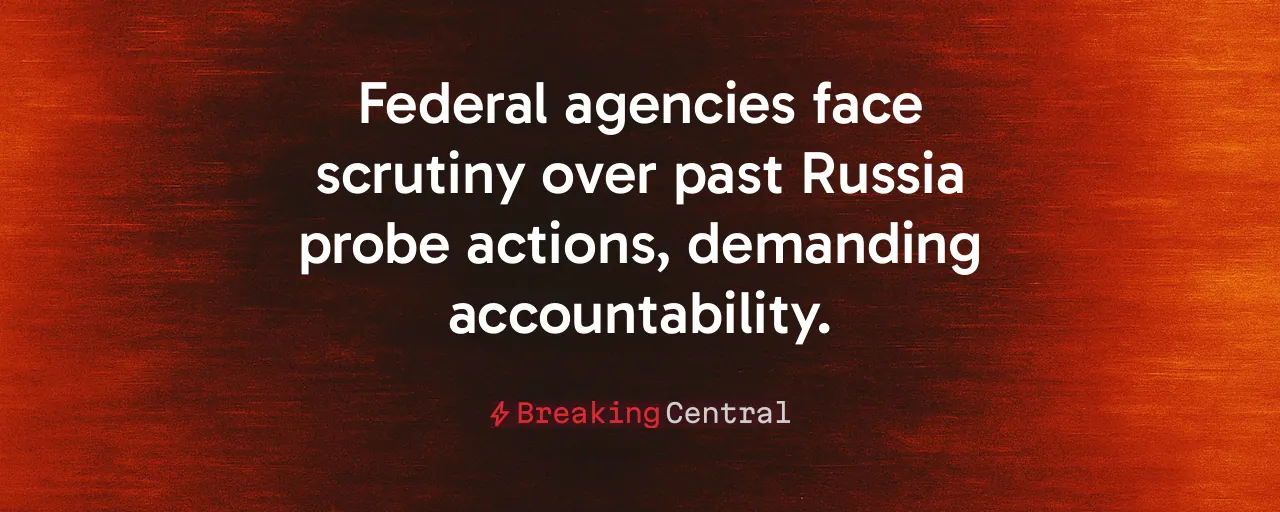A Reckoning for Federal Overreach
Last week, the Department of Justice confirmed that the FBI has launched criminal investigations into former FBI Director James Comey and former CIA Director John Brennan. The probes focus on their roles in the 2016-2017 Russia-related investigations targeting Donald Trump's campaign and administration. Sparked by retired Lt. Gen. Michael Flynn's fiery demand on The Benny Show, these inquiries signal a bold push to address long-standing grievances about federal overreach.
Flynn, a key figure in the early Trump administration, accused Comey and Brennan of orchestrating a 2017 conspiracy to undermine the president. His call for action, aired on July 1, 2025, resonated with millions who see the investigations as a chance to restore accountability. Attorney General Pam Bondi now faces intense pressure to deliver results, with the DOJ signaling that contempt charges could follow if the former officials stonewall.
This development extends beyond two individuals, raising fundamental questions about whether federal agencies can be trusted to operate without bias. For years, many have argued that the FBI and CIA, under Comey and Brennan, crossed ethical and legal lines to target Trump. The new probes offer a chance to uncover the truth and rebuild public faith in institutions meant to serve, not sabotage, the American people.
Unmasking a Troubled Past
The investigations center on the FBI's Crossfire Hurricane probe and the CIA's handling of the Steele dossier, a controversial document alleging ties between Trump and Russia. Declassified records show that Brennan pushed to include the unverified dossier in the 2017 Intelligence Community Assessment, a move critics call reckless. A 2025 CIA review confirmed flaws in this decision, noting it muddied the waters of credible intelligence.
Comey's role is equally contentious. The 2023 Durham report exposed how the FBI, under his watch, relied on raw, uncorroborated data to launch Crossfire Hurricane. Declassified files from 2020 also revealed that Comey was among 39 officials who requested the unmasking of Flynn's identity, a step many view as an attempt to smear a Trump ally. These actions, critics argue, set a dangerous precedent for politicizing law enforcement.
Historical context bolsters these concerns. In January 2017, the FBI interviewed Flynn at the White House, a move later criticized as entrapment. By May, Comey was fired, and the Mueller probe took over, fueling perceptions of a vendetta. The Durham report, while securing only one conviction, underscored systemic lapses in the FBI's approach, lending weight to demands for accountability.
Why Accountability Matters
At the heart of these probes lies a simple question: Can high-ranking officials act with impunity? For those who value the rule of law, the answer is no. If Comey and Brennan broke laws, whether through false statements, obstruction, or misuse of classified data, justice demands consequences. Anything less risks a double standard where elites evade scrutiny while ordinary citizens face the full weight of the law.
Beyond individual accountability, the investigations highlight a broader issue: the politicization of federal agencies. When the FBI and CIA appear to target a duly elected president, public trust erodes. Political scientists note that perceptions of impartiality are critical to law enforcement's legitimacy. High-profile clashes like this only deepen partisan divides, leaving voters skeptical of the system.
A Call for Structural Reform
These probes offer an opportunity to address past issues and strengthen future operations. Strengthening oversight of federal agencies is critical to preventing abuses. Expanded powers for inspectors general could catch misconduct early. Term limits for senior intelligence leaders might reduce entrenched biases. Reforming the FISA process, which allowed flawed applications in 2016, is another urgent need.
Legal scholars caution that proving crimes like conspiracy or false statements requires clear evidence of intent. Yet even if criminal charges don't materialize, administrative reforms can address systemic flaws. A bipartisan independent counsel, with a limited mandate and public reporting, could ensure fairness while avoiding perceptions of political revenge.
The Stakes for America
The investigations into Comey and Brennan carry high stakes. Economically, prolonged legal battles could burden taxpayers and unsettle markets if senior resignations follow. Socially, competing media narratives risk further polarizing the nation, with each side digging into its version of the truth. Legally, the executive branch's pursuit of former officials raises questions about separation of powers.
Yet the greatest risk is to public trust. If the DOJ mishandles these probes, either by overreaching or failing to act, faith in democratic institutions could take another hit. Voters deserve transparency, not secrecy, and accountability, not excuses.
Moving Toward Justice
The road ahead won't be easy. Gathering classified evidence risks exposing sensitive sources, and jury selection will face challenges from widespread media coverage. Still, the DOJ's commitment to full investigations signals a serious effort to uncover the truth. Pam Bondi's leadership will be tested as she balances legal rigor with political expectations.
For many Americans, these probes are a long-overdue reckoning. They offer an opportunity to ensure that all individuals, including former intelligence chiefs, are held accountable under the law, and to rebuild trust in a system that has been strained by years of controversy.
As the investigations unfold, one thing is clear: The pursuit of justice needs to rise above partisan noise. By holding powerful figures accountable and reforming flawed systems, the nation can strengthen its commitment to fairness and the rule of law. The work starts now.
